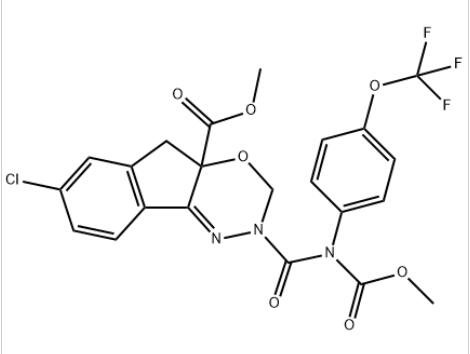News
-
Prothioconazole has great development potential
Prothioconazole is a broad-spectrum triazolethione fungicide developed by Bayer in 2004. So far, it has been registered and widely used in more than 60 countries/regions around the world. Since its listing, prothioconazole has grown rapidly in the market. Entering the ascending channel and perfor...Read more -

Insecticide: action characteristics and control objects of indamcarb
Indoxacarb is an oxadiazine insecticide developed by DuPont in 1992 and marketed in 2001. → Scope of application: It can be used for the prevention and control of most lepidopteran pests (details) on vegetables, fruit trees, melons, cotton, rice and other crops, such as diamondback moth, rice...Read more -
Analysis on the Development Trend of Nematicides
Nematodes are the most abundant multicellular animals on the earth, and nematodes exist wherever there is water on the earth. Among them, plant parasitic nematodes account for 10%, and they cause harm to plant growth through parasitism, which is one of the important factors that cause major econo...Read more -
How to prevent and control tobacco shredded leaf disease?
1. Symptoms Broken leaf disease damages the tip or edge of tobacco leaves. The lesions are irregular in shape, brown, mixed with irregular white spots, causing broken leaf tips and leaf margins. In the later stage, small black spots are scattered on the disease spots, that is, the ascus of the pa...Read more -
The combination of these two drugs is comparable to paraquat!
Glyphosate 200g/kg + sodium dimethyltetrachloride 30g/kg : fast and good effect on broad-leaved weeds and broad-leaved weeds, especially for field bindweeds without affecting the control effect on grass weeds. Glyphosate 200g/kg+Acifluorfen 10g/kg: It has special effects on purslane, etc. It al...Read more -
Application effect of prohexadione calcium
Prohexadione Calcium, as a new green and environment-friendly plant growth regulator, has broad spectrum, high efficiency and no residue, and can be widely used in food crops such as wheat, corn and rice, oil crops such as cotton, peanut, soybean and sunflower, garlic, Potatoes, onions, ginger, b...Read more -
The most used sulfonylurea herbicide-bensulfuron-methyl
Bensulfuron-methyl belongs to the sulfonylurea class of broad-spectrum, high-efficiency, low-toxic herbicides for paddy fields. It has ultra-high-efficiency activity. At the time of initial registration, the dosage of 1.3-2.5g per 666.7m2 can control various annual and perennial broad-leaved weed...Read more -

Be careful when using brassinolide!
Brassinolide is known as the sixth category of plant nutrition regulators, which can promote crop growth, increase crop yield, and improve crop stress resistance, and can significantly increase crop vegetative growth and fruit development. Although brassinolide has many benefits, the following a...Read more -
The control of above-ground and underground pests is 10 times higher than that of Phoxim- Insecticide Clothianidin.
Prevention and control of underground pests is an important task for autumn crops. Over the years, the extensive use of organophosphorus pesticides such as phoxim and phorate has not only produced serious resistance to pests, but also seriously polluted groundwater, soil and agricultural products...Read more -

Triadimefon will usher in a new era for herbicide market in rice fields
In the herbicide market of rice fields in China, quinclorac, bispyribac-sodium, cyhalofop-butyl, penoxsulam, metamifop, etc. have all led the way. However, due to the long-term and extensive use of these products, the problem of drug resistance has become increasingly prominent, and the loss of c...Read more -
This drug double kills insect eggs, and the effect of compounding with Abamectin is four times higher!
Common vegetable and field pests such as diamondback moth, cabbage caterpillar, beet armyworm, armyworm, cabbage borer, cabbage aphid, leaf miner, thrips, etc., reproduce very fast and cause great harm to crops. Generally speaking, The use of abamectin and emamectin for prevention and control is ...Read more -
Boscalid
Introduction Boscalid is a new type of nicotinamide fungicide with a broad bactericidal spectrum and is active against almost all types of fungal diseases. It is also effective against bacteria resistant to other chemicals, and is mainly used for the control of diseases including rape, grapes, fr...Read more




